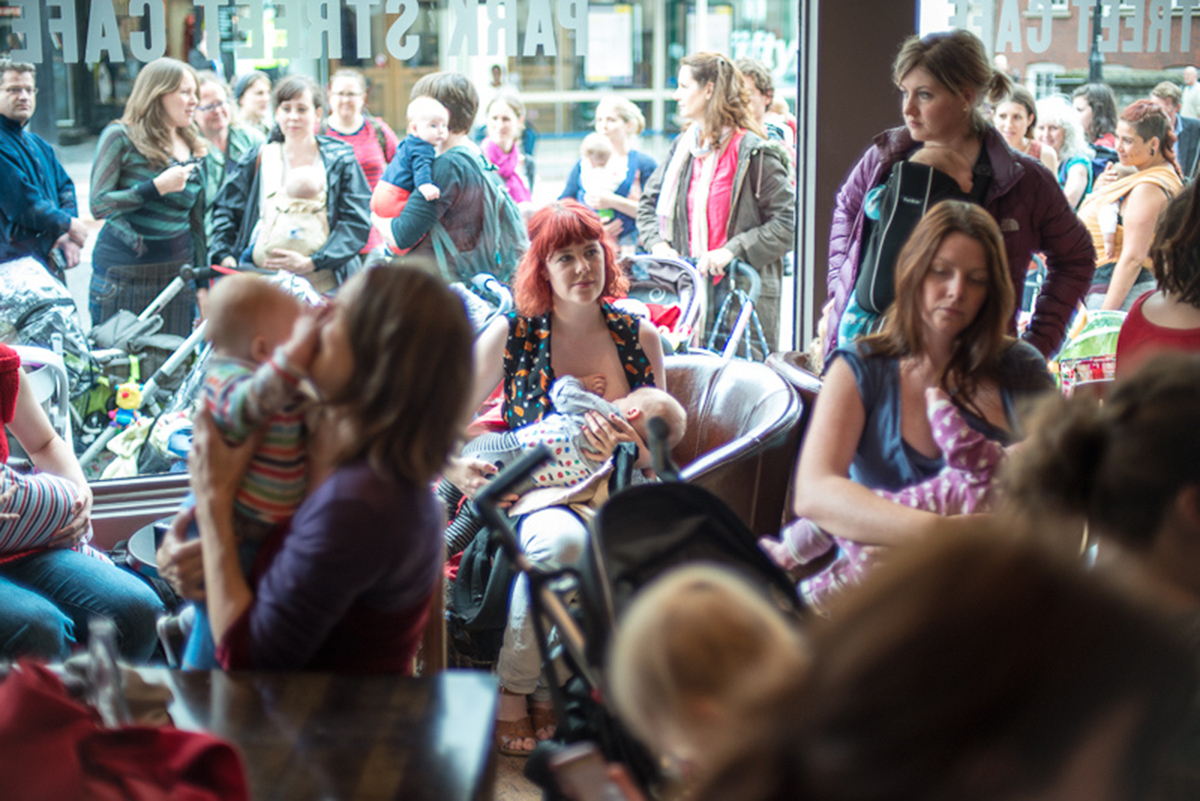Table of Contents
Baby Should Wean At Six Months
Breastfeeding really isn't unusual in the United States: in 2011, 79 percent of all babies nursed for at least a while. Only half are still breastfed at six months, the age at which solid foods are typically introduced. A mere 18.8 percent were still exclusively breastfed, meaning the baby only consumes breast milk and nothing else. At three months, 40.7 percent was exclusively breastfed, while 26.7 percent of babies still breastfed at all at one year.

Still, there's a lot of weirdness around nursing. You've probably heard most of these things, and may agree with some:
- Moms should not breastfeed in public, should nurse in the restroom if people are around, or should cover themselves up with blankets
- Breastfed babies should but put on a feeding schedule, just like formula-fed babies
- Breasts are primarily sexual
- Nursing typically takes more physical effort and time than formula feeding
- Breastfeeding for prolonged periods of time is creepy
You may have seen Little Britain's grown-up nurser asking for "bitty" wherever he went, including at his wedding. That would be creepy, but it's not going to happen. A one-year old nursing is hardly the same as a breastfed college student! The World Health Organization says two years is the optimal duration for breastfeeding, and that solids should be introduced at six months. Don't feel the need to wean at six months if you don't want to, because your child will still benefit from your milk if you continue.
Breastfeeding Makes You Lose That Pregnancy Weight
Breastfeeding has been shown to have quite a few health benefits, including a lower risk of eczema, juvenile rheumatoid arthritis, and urinary tract infections for the baby. Moms aren't left behind either, as breastfeeding reduces a woman's risk of breast and ovarian cancer. The longer a woman continues breastfeeding, the more those risks go down. Breastfeeding is not a magical solution to everything, however. Now that we've gone through a few of the most important breastfeeding myths that paint nursing in a negative light, it's only fair to look at the other side too.
Yes, breastfeeding burns about 300-500 calories a day. That may contribute to weight loss after pregnancy, but not really by that much. Will those baby pounds just drop off if you nurse, even if you eat whatever you want and don't exercise? No, of course not! Most moms will find it takes a bit more than breastfeeding to return to their pre-pregnancy weight.
See Also: Safe Ways To Lose Weight While Breastfeeding
Never drop below 1500-1800 calories a day though, as you could be putting your health at risk. Do feel free to exercise.
Breast Is Always Best, No Matter What
Breastfeeding is a bad idea if you have HIV. A very bad idea. It's also a bad idea if you're on certain medications, if breastfeeding hurts so much it's making you miserable and you can't figure out how to make the pain go away even with a lactation consultant, or if you simply don't want to breastfeed. Breastfeeding has benefits, but breast is not best in all circumstances. That's why is so awesome that formula exists.
- Photo courtesy of Aurimas Mikalauskas by Flickr: www.flickr.com/photos/aurimas_m/3802740128
- Photo courtesy of dailycloudt by Flickr: www.flickr.com/photos/dailycloudt/7526071676


Your thoughts on this